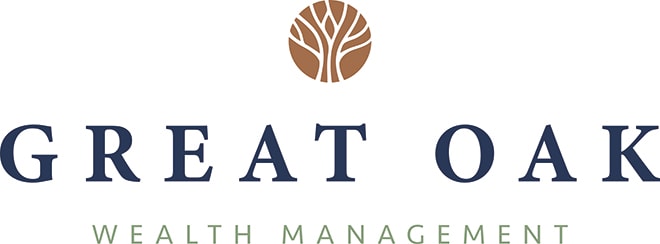If you’re an independent contractor, contingent employee, temporary employee, on-call worker, or whatever new name comes down the pike, you are one of the increasing members of the gig economy. Whether it’s your choice or not, long-term success requires financial responsibility, discipline, and an entrepreneurial attitude.
This isn’t your parent’s career track
You probably won’t be working 30 years for one company like your parents and grandparents. Your job could last three hours, days, weeks, months, or years. You may even work multiple jobs at the same time. Different studies indicate the gig workforce is between 16% and 30%. Traditional employment is clearly evolving. I’m not going out on a limb when I say those percentages will continue to rise.
The accidental boss
If it’s a permanent choice or one that is just temporary, you are the boss in the gig economy. There is no company to take care of you or provide benefits, retirement plans, or withhold taxes. It falls on your shoulders.
If you’ve been part of the gig economy for a while or if this is all new, you need to be aware of the responsibilities you have to juggle. You’re the finance, HR, and marketing departments; you wear all the hats!
Accounting 101
Instead of W-2s, income is tracked and reported on 1099’s or a profit and loss statement. It’s your responsibility to keep track of revenue. Proper accounting will require more effort if you receive cash, check, or credit card payments. Do you want to do that yourself or pay a professional?
Do yourself a favor and get a separate business checking account. Mixing personal and business finances is never a good idea. A dedicated account for your business income and expenses will make life much easier.
Expenses are just as necessary as revenue when you’re on your own. Understanding what you can and cannot deduct, claiming depreciation, mileage, and taking a home office deduction, yes, the list is endless. There is no guessing or assuming. You certainly don’t want to pay more tax than necessary or deduct an expense that isn’t. Does your head hurt yet?
Self-employment tax
I’ve seen way too many business owners get tripped up by taxes. It’s not just knowing your income tax liability or waiting until April 14th to figure it out. You need to calculate/estimate your taxable income AND your self-employment tax.
Unlike your W-2 counterparts, you do not have Medicare and Social Security taxes withheld from your pay. To add insult to injury, when you’re an employee, you pay a portion, and the company you work for pays a portion of the tax. When you’re self-employed, you have to pay for both.
Organization is imperative. You don’t want tax problems to undermine your business or personal finances. That means you should pay Federal, State, and Local taxes quarterly. It keeps you out of trouble. You can avoid penalties and one big tax bill come April 15.
Cash payments
After discussing accounting and taxes, it’s an excellent time to address revenue received in cash. Yes, you have to report the cash payment that you receive. Not only does the IRS frown on this there are other repercussions that people do not even realize.
What happens if you want to buy a car, rent or purchase a home, or collect Social Security? If you don’t have any reportable income, how can you qualify for any loans? Without income, there is no record of Social Security. Also, without reported income, you can’t contribute to retirement plans.
Benefits in the gig economy
The significant benefits of the gig economy include being your own boss and setting your own hours. While those aren’t too bad, unfortunately, they aren’t the benefits I’m referring to.
A lot is riding on your income. A medical emergency, disability, or something worse can be devastating. That’s why you, more than anyone, need to diversify that risk through a comprehensive benefits plan.
Oddly enough, gig economy workers and small-business owners frequently let benefits fall by the wayside. They’re too busy growing the business, plowing income back into growth.
A comprehensive benefits plan is not an aspect that you should shortchange. It would be best to design a benefit plan that protects you and your family from financial disaster. Your plan should include:
Healthcare: This is an easy one. It will not only save you in the case of illness or injury, but you must have qualified health insurance to avoid a penalty.
Life insurance: If you die and are part of the gig economy, your income disappears. Life insurance can be used to protect your family.
Disability insurance: If you become disabled and can’t work, you won’t get paid.
No vacation: That’s right, no paid vacation when you’re in the gig economy. If you want to take time off, you must plan for it.
Don’t forget about retirement
No pension or 401k. You need to come up with your own retirement plan. You need a small business retirement plan since you are now a small business. I’ve previously gone through small business retirement contribution plans and pension plans. The good news when you’re self-employed is you have many options. You can read more about small-business retirement plans here and here.
Do you have the stomach for the gig economy?
You are at the whim of the consumer or company needing your services. The gig economy has grown out of the recession of 2008. What happens when we go through another recession? When demand drops, those in the gig economy could suffer. This creates an economic vulnerability.
You must plan for the next downturn if you choose to work in the gig economy. Although everyone should do the following two steps:
Budgeting: Your income may not be stable. Knowing how much and when you need it may keep you from panicking and using those credit cards.
Emergency fund: Or, as I like to call it, the anti-credit card fund. Let’s face it: your emergency fund in the gig economy may have to be bigger than the typical 3-6 month cushion most advisors recommend. The lack of stability dictates it.
The future of the gig economy
There is no doubt that participation in the gig economy is going to increase over the next few years. This trend is moving more of the financial risk from companies to individuals. That risk must be managed through discipline and having a small-business owner outlook.
Are you part of the gig economy? Please share your thoughts and financial planning experiences below.








